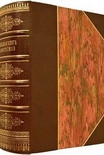The Striker, Clive Cussler [early readers .TXT] 📗

- Author: Clive Cussler
Book online «The Striker, Clive Cussler [early readers .TXT] 📗». Author Clive Cussler
21
ISAAC BELL FOLLOWED MARY HIGGINS AT A DISTANCE THAT varied from a half to a full block, depending upon how crowded the sidewalks were. He endeavored to keep numerous pedestrians between them, and repeatedly donned and removed his dark coat and his broad-brimmed hat to change his silhouette.
Joseph Van Dorn’s orders were ringing in his ears—Find out what the devil she is up to. If he hadn’t seen her throw the lantern that burned down the Gleasonburg courthouse, he might have protested her innocence, or at least taken the accusation with a grain of salt. But he had seen her hurl it and had seen the look of triumph on her beautiful face. So he followed, intensely curious, and pleased to be near her, even though it took him off his own case.
She was easy to follow, taller than most people thronging the busy sidewalks, and plunging along single-mindedly, never looking back. It started to rain. She bought a red scarf from a peddler on Twenty-third Street.
She stopped on Fourteenth Street where Broadway and Fourth Avenue joined at Union Square and listened to a speaker haranguing a crowd about the coal strikes and the United States war against the Philippine insurgents.
“Three cheers for anarchy!” he roared, and the crowd took up the cry.
Mary Higgins put money in the hat when passed and hurried on. South of Houston Street, she cut east into the crowded Jewish district, and Bell drew closer to keep her in sight.
“Don’t buy beef!”
Groups of women were mobbing Kosher butcher shops and yelling at housewives who emerged with bundles: “Boycott the Beef Trust!”
Cops gathered on the corners, big men in blue coats and tall helmets.
Bell almost lost sight of Mary in a mob of women screaming at one another.
“My babies are sick. They must eat.”
Isaac wedged through and ran after Mary. He was no longer afraid of Mary seeing him. There was a grim electricity in the air—the same threat of imminent, mindless violence that he had felt in the miners’ mob at Gleasonburg. The women and the butchers and the glowering cops were all about to lose the last vestiges of reason, and Mary Higgins was caught in the middle.
• • •
A HUNDRED FEET ahead of Isaac Bell, half a city block, Mary Higgins followed her ears to the exciting roar of a mass meeting that was spilling from the new Irving Hall and packing Broome Street sidewalk to sidewalk. She was thrilled that the bold immigrant Jewish women leading New York’s needle-trades union battle were exerting their newly won power against the Beef Trust’s extortionate prices.
“The Hebrews are rioting!” roared a red-faced Irishman.
Whistles shrieked and the police advanced.
“Break it up!”
The women screamed back at the cops. “Who do you work for? The trusts? Or the people?”
“Move along, sister.”
“Cossacks!” screamed a woman, and her sisters combined to chant.
“Cossacks! Cossacks! Cossacks!”
“Break it up! Break it up!”
Then a girl screamed at the top of her lungs, “What’s a penny made of?”
“Dirty copper!”
A big cop shoved a woman. She fell on the rain-slicked cobblestones.
Mary Higgins jumped to help and pulled her to her feet before she was trampled.
Another woman sprawled and her bundles went flying. Something soft landed on Mary’s boots—blood-soaked butcher paper had torn open, spilling a slab of liver. A fat cop with a handlebar mustache and bushy eyebrows knocked Mary to her knees. Terrified of being trampled, she tried to stand.
The cop held her down and roared in her face, “What’s a pretty Irish lass doing with a bunch of dirty Yids?”
In that eruption of hatred, Mary Higgins felt her doubts evaporate. There was a huge difference between right and wrong, and what she had to do in Pittsburgh was right. She picked up the liver, hauled back, and slapped the cop’s face with it. The soft red flesh splattered on his eyebrows and mustache and stuck to his skin. Blinded, he reeled away, shouting in anger and confusion.
The other cops saw him pawing at his bloodstained face.
Thirty charged up Broome Street, swinging clubs.
The women’s screams of anger turned to shrieks of fear. They stumbled back and tried to run, surging into those behind, slipping on the wet cobblestones. Mary yanked a wild-eyed girl to her feet only to fall herself, crushed by the pack. A shoe mashed her hand against a cobblestone, another slammed into her back. The sky turned black with bodies tumbling on top of her. Struggling with all her strength, she could not rise. She could hardly breathe under the weight of the bodies. Suddenly, a powerful hand closed around her arm.
“I’ve got you,” a strong voice cut through the shouts and screams. “Stick close.”
The hand lifted her effortlessly up and out of the crush and set her on her feet and pulled her through the mob as if its owner was a mighty sword cleaving a path through the melee and around a corner.
More cops were coming on the run.
“Don’t look at them. Walk fast. Don’t run.”
She finally got a glimpse of her rescuer at Canal Street when he let go of her arm and turned to her. A broad-shouldered workman in a loose coat and overalls. He had a red scarf knotted at his throat, a battered felt hat with the brim slung over his eyes.
“Are you all right?” he asked her.
“You saved my life.”
“Someone had to. I just happened to be close enough.”
She offered her hand. “Thank you. I’m Mary Higgins.”
“Pleased to meet you, Mary Higgins. I’m John Claggart.”
22





Comments (0)